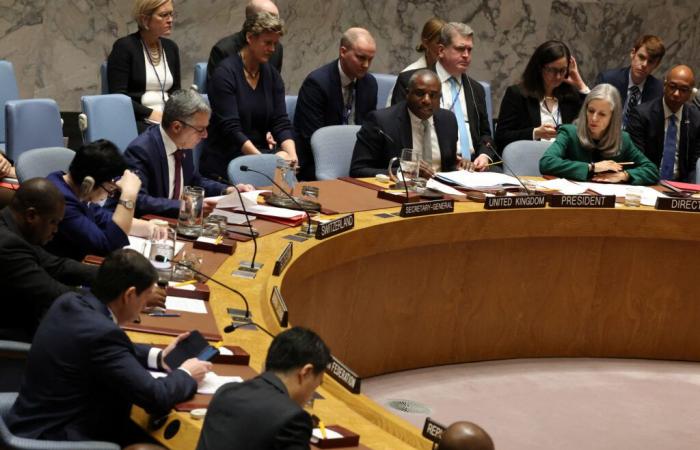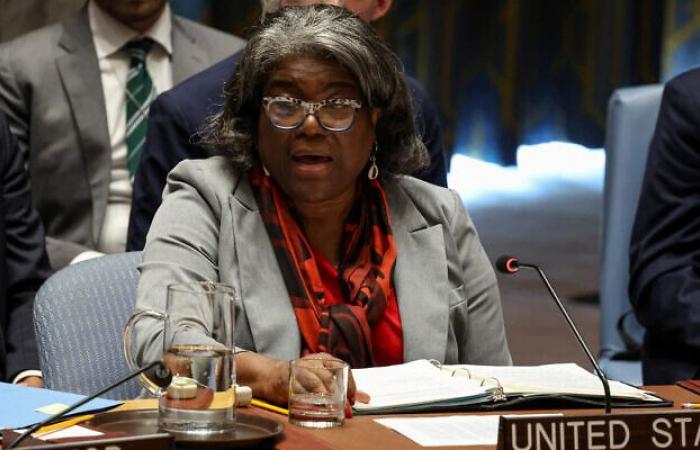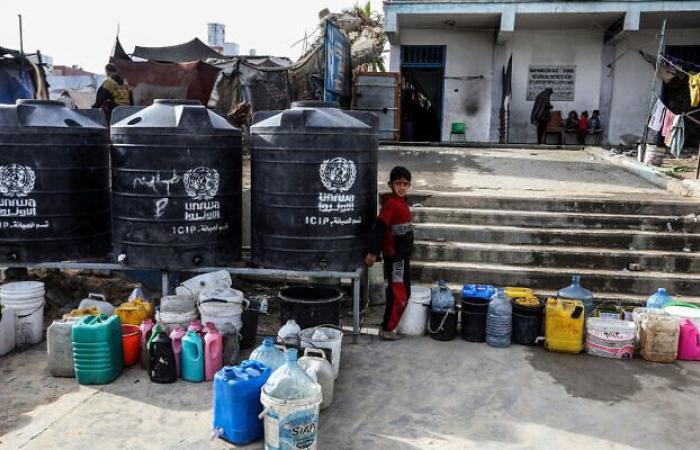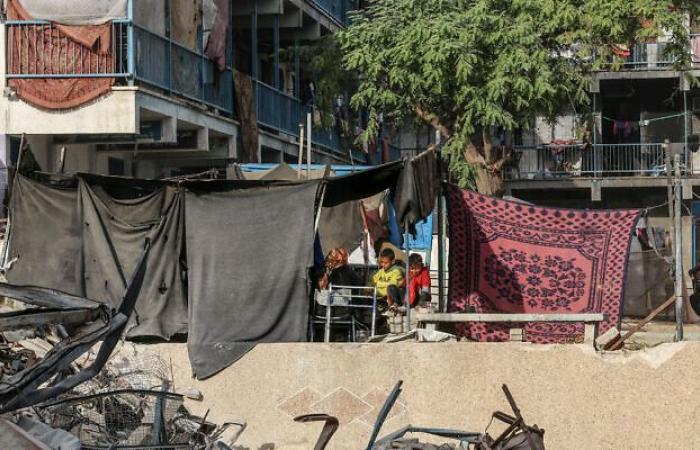Members of the United Nations Security Council called on Monday for an increase in aid to people in need in Gaza, warning that the situation in the Palestinian enclave continued to worsen.
British Foreign Secretary David Lammy said there needs to be a “significant increase in aid” to Gaza, where Israel and the Palestinian terror group Hamas have been fighting since October last year.
The war began with Hamas’s invasion of southern Israel on October 7, during which the terrorists killed nearly 1,200 people and kidnapped 251 hostages and took them to Gaza. Israel then launched a ground incursion into Gaza, where it has been fighting Hamas ever since.
Receive our daily edition for free by email so you don’t miss the best news. Free registration!
According to the Hamas-run Health Ministry, more than 43,922 Palestinians have been killed in the war, although this toll cannot be verified and it does not distinguish between civilians and terrorists.
Some 1.9 million Palestinians of Gaza’s 2.3 million residents reside in an Israeli-designated “humanitarian zone,” according to Israeli military assessments in July. This area is located in the al-Mawasi region, on the southern coast of the Strip, in the western neighborhoods of Khan Yunis and in central Gaza, in Deir al-Balah.
“The situation is devastating, and frankly, beyond belief, and getting worse instead of better. Winter is here. Famine is imminent, and 400 days into this war, it is completely unacceptable that it is harder than ever to get aid to Gaza,” Lammy said.
Palestinians, including children, wait to receive food distributed by a humanitarian organization in Deir Al Balah, Gaza, November 18, 2024. (Hassan Jedi/Anadolu/Reuters)
US Ambassador to the UN Linda Thomas-Greenfield told the Security Council that Washington is closely monitoring Israel’s steps to improve the situation for Palestinians and engages with the Israeli government every day .
“Israel must also urgently take additional steps to improve the dire humanitarian situation in Gaza,” she said.
US President Joe Biden’s administration concluded this month that Israel was not currently obstructing aid to Gaza and therefore not violating US law, even though Washington acknowledged that the humanitarian situation remained dire in the Palestinian enclave.
The assessment came after the United States, in a letter dated October 13, gave Israel a list of steps to take within 30 days to address the worsening situation in Gaza, warning that Failure to comply with these measures could have consequences for American military aid to Israel.
Thomas-Greenfield said Israel was working to implement 12 of the 15 measures.
United Nations Ambassador Linda Thomas-Greenfield addresses the United Nations Security Council on the situation in Sudan and South Sudan, at the United Nations headquarters in New York, November 18, 2024. (Credit: REUTERS/ Brendan McDermid)
“We need to see all measures fully implemented and supported, and we need to see a concrete improvement in the humanitarian situation on the ground,” she said, including Israel allowing commercial trucks to entering Gaza with humanitarian aid, tackling persistent lawlessness and implementing pauses in fighting in large areas of Gaza to allow aid to reach those in need.
Tor Wennesland, UN coordinator for the Middle East peace process, said humanitarian agencies faced a difficult and dangerous operating environment in Gaza and access restrictions that hampered their work.
“The humanitarian situation in Gaza, at the start of winter, is catastrophic, particularly with regard to the evolution of the situation in the north of the Gaza Strip, where we are witnessing massive and almost total displacement of the population and widespread destruction and clearing, in what appears to be a worrying disregard for international humanitarian law,” he said.
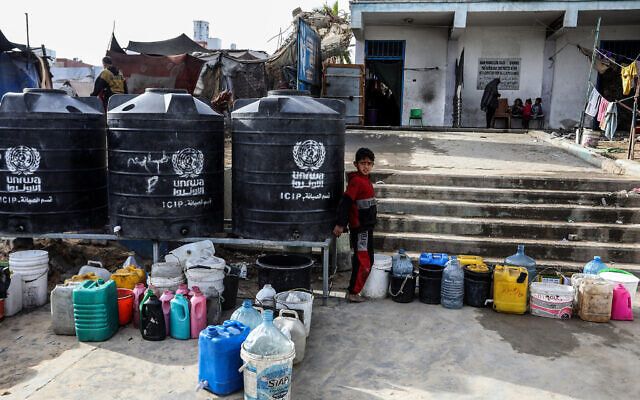
Displaced Palestinians set up makeshift tents in Khan Younes, Gaza, November 18, 2024. (Abed Rahim Khati/Anadolu/Reuters)
“The current conditions are among the worst we have seen since the start of the war and are not likely to improve,” he said.
EU decides not to suspend relations with Israel
Separately, European Union (EU) foreign ministers did not decide on Monday to suspend political dialogue with Israel, Poland said, following a proposal to do so from the head of politics foreigner of the Union, Josep Borrell.
Borrell had written to EU foreign ministers ahead of Monday’s meeting in Brussels, expressing “deep concerns about possible violations of international humanitarian law in
Gaza ».
Polish Foreign Minister Radoslaw Sikorski told reporters in Brussels that he and his counterparts from other EU member states had not accepted the proposal.
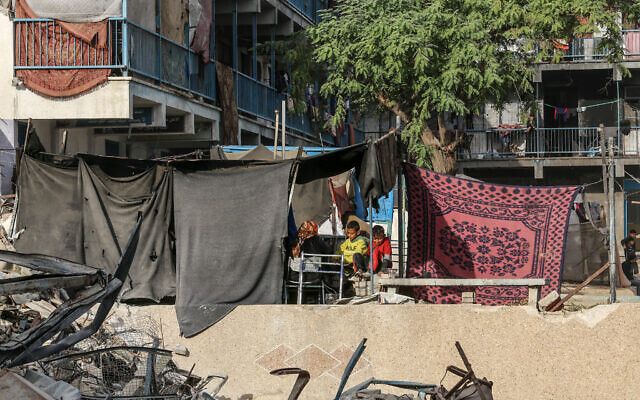
Displaced Palestinians set up makeshift tents in Khan Younes, Gaza Strip, November 18, 2024. (Abed Rahim Khatib/Anadolu/Reuters)
“We know there are tragic events in Gaza, enormous civilian casualties, but we do not forget who started the current cycle of violence,” Sikorski said. “And I can tell you that there was no consensus on the idea of suspending negotiations with Israel.”
The political dialogue is part of a broader agreement on relations between the EU and Israel, which includes extensive trade links, and which entered into force in June 2000.
A suspension would have required approval from all 27 EU countries.
The EU has struggled to find a strong common position on the Gaza war, but it has consistently called on Hamas to release all Israeli hostages and on both sides to respect international law.

